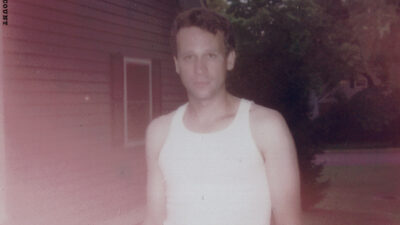This article previously appeared on Crossfader
Genre: Art Pop, Glitch Pop
Favorite Tracks: “Arisen My Senses,” “Blissing Me,” “The Gate,” “Body Memory,” “Courtship,” “Losss,” “Saint,” “Future Forever”
Lips softly pucker, the tongue flattens, the inside of the mouth concaves into a warm, rounded coo, and cuts off with a hard click against the hard palate as quickly as the word began—“Björk.” Saying it is as sensual and blunt as it is alien to a non-Scandinavian tongue, so it’s no wonder that the Icelandic singer-songwriter fits her denomination like a tight, leather glove. With a career spanning over 40 years, Björk’s name carries with it countless charted singles, music and video awards and nominations, and collaborations with artists ranging from producer Timbaland and experimental hip hop group Death Grips, to Canadian Inuit throat singer Tanya Tagaq and cerebral French director Michel Gondry. But no amount of accolades or artistic associations can hold her down too heavily—Björk is too forward-thinking, ever-mutating like the slippery amoeba she is.
Having started in alternative rock and house music, Björk’s contemporary work has propelled farther and farther from Earth and into star systems of her own making, where planets of trip-hop, ambient, electronica, and glitch pop orbit nearby. Whatever it is she’s making music about—nature, science, love, sex, emotions, politics—it is pulled straight from her marrow and, like the soft pucker of the lips into the supple undulation of the tongue when saying her name, blown into extraterrestrial proportions. What would she sound like if she came back to earth?
If 2015’s VULNICURA was an album made from the deepest, darkest black hole in the cosmos, UTOPIA is the ecstatic, protozoan return to pre-industrial life on earth. Though the former is arguably her most tangibly “human” album, portraying Björk’s most candid and intimate exposé of heartbreak to date, UTOPIA follows suit as its polar opposite emotionally. As with most of the Icelandic artist’s work, her ninth studio album demands the undivided attention of the listener as it aurally probes through all aspects of its themes. Despite the henceforth exhaustion, her command is merely another testament to Björk’s virtuosity—her music is not meant for easy listening, but rather for experiencing, and as with all experiences, there is a winding road to be taken, not just two static starting and ending points.
Where the experience of VULNICURA is harrowing and chilly, UTOPIA is almost as fanciful and manically optimistic as its title proclaims. With a return in co-production from Arca, the beats are studded and deliberate, though textured over this time with wistful, haunting flute choirs and bird chirps, a departure from the panoramic string arrangements of its predecessor, which called back to Björk’s HOMOGENIC era. Nonetheless, the result discovers euphoria at both its most explosive and most tender moments. Without hesitation, album opener “Arisen My Senses” captures the former with rhapsodic frenzy as harps shimmer over the convulsive fireworks that sample an early Arca release, “Little Now A Lot.” Its face-numbing joy feels like “Hyperballad” (POST) on steroids. Around the two-minute mark, the small giggle that briefly breaks Björk’s steady recitation is a reminder of the romantic bliss that forces your hair to stand on end, and constructs the idealized universe she psychosomatically inhabits.
As a direct response to VULNICURA, UTOPIA is especially self-aware in its acknowledgement of the past as it affects the present, and in doing so, the sparser arrangements are some of the most sincere, stirring in her heart’s empty, open space—a space that does not feel so wounded anymore, but remains hollowed and cavernous. The slow-burning ambience of “The Gate” echoes in that corner-less chamber, synths simmering at the chorus like light entering a dark room. The cold of “The Gate” follows the earnest and subdued “Blissing Me,” a charming lullaby for the insecure, honeymoon-like excitement that realizes her infatuation is only with ideas—“My woe and longing, far too visceral / Did I just fall in love with love?” She is caught between the wreckage of what she has known, and the mysterious abyss of single life ahead of her.
Surprisingly, the first track contains the most ebullient soundscape on the record, and although each song on UTOPIA seems to portray various different aspects of heaven, nothing is quite as warm and orgasmic as the opener. Subsequent uptempo tracks either fall dissonant, or sound like a feverish fairytale amidst all those flutes and birds, or both. Again—not easy listening, but it is best appreciated if you can imagine yourself in the pagan forestry of Björk’s paradise. What sophisticates UTOPIA and prevents it from sounding like theme songs for Aesop’s Fables is the richness of its beats, which ground the otherwise whimsical and melodically dense woodwinds. “Courtship,” for example, juxtaposes winding flute lines with rapid, flickering percussion like a glitchy, MEDÚLLA B-side as she considers the strength in romantic histories propelling oneself into new loves (“The love you gave and have been given / Weave into your own dream / I trust my cells to rearchive / My love historic stream”). Similarly, the title track, “Utopia,” nimbly weaves and paces as pitch-corrected birds yawn and yawp, a reminder that human conceptions of heaven are still only composed of objects from our reality.
Most of UTOPIA’s sonic landscape leans less towards the extreme delightedness of the aforementioned tracks and instead explores sounds that feel much more intense or severe, the most sorrowful point being “Sue Me,” a song about Björk’s legal custody battle with her ex-partner Matthew Barney, on an ill-fitting vaporwave beat. And, at a total album runtime of 71 minutes, bringing the baggage of VULNICURA over into UTOPIA’s territory seems indulgent, tired, and weakens the spine of the album as a whole (“Body Memory” itself is, in fact, UTOPIA’s response to the bleak centerpiece of VULNICURA, “Black Lake”). For the most part, the listener has to wade through the surplus in order to even reach the utopia being celebrated by the end, and unfortunately, the excess tends to drag or esoterically bustle until the next coherent arrangement can formulate.
Nevertheless, Björk’s dark contemplation is best executed on the track’s antecedent, “Losss,” a song about losing someone and having to grow into the space left behind. With a delicate harp and flute arrangement gliding atop a gothic, industrial beat, the track effortlessly calls back to instrumental elements of “Pagan Poetry” (VESPERTINE) and “Jóga” (HOMOGENIC), respectively, while offering one of the most palpable and provocative vocal melodies on the album: “I opened my heart for you / Your lower lip, so heavy on you / My spine curved erotically / We’re finally vulnerable.” That very vulnerability becomes Björk’s nirvana, an opportunity to start anew. With little left and little to lose, she floats through that once-lost and lonely dearth on a wave of self-realization, intuiting her purpose and connection to the natural world around her. Atmospheric “Claimstaker” proclaims, “I inhale this physicality / This forest is in me,” followed by the nurturing embrace of “Saint” and its omnipotent layers of breathy incantations and languid flutes: a case study in spiritual transcendence.
UTOPIA is an organic and ultimately uplifting sequel to deep, human heartbreak, writhing through its first half in an exploration for a new path in a complicated manner, a new Epicurean paradise beyond romantic companionship. Thankfully, our protagonist comes out victorious; by the end, Björk is not left empty-handed or empty-hearted. She can walk through the pearly gates of Shangri-La with dignity, a tabula rasa, a childlike curiosity and passion for the future and its possibilities after the pain melts away. UTOPIA doesn’t have to be a distant fantasy, but rather a forest of resilience and actualization cultivated within oneself. Freshly enlightened, she prompts, “Your love is already waiting / You’re already in it.”
Verdict: Recommend















Comments